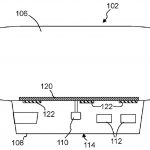Walmart buys a VR company on its way to invent ‘contextual commerce’
The purchase establishes the third ‘portfolio company’ through the giant retailer’s tech incubator, Store No 8.

Walmart, which has been gearing up to take on Amazon’s continued competitive threat, added a new item this week to its arsenal: a virtual reality startup called Spatialand.
The purchase was actually made through Walmart’s tech incubator, Store No 8, which had worked with Spatialand in 2017 on a VR project. Announced last March, the incubator’s name comes from one of the original Walmart store locations in Arkansas, where founder Sam Walton liked to test retail ideas.
Spatialand, which offers VR development tools, will operate as a portfolio company, Store No 8’s third, and will work to create new VR/AR applications for both the online Walmart and the physical stores.
The portfolio companies are intended to develop what Store No 8 calls “radical innovations” for retail. The other two portfolio companies are Project Franklin, a group of software and hardware developers who have previously created home devices, and Code Eight, headed by Rent the Runway co-founder Jenny Fleiss and intended to create one-to-one shopping experiences.
In a post on its blog, Store No 8’s Katie Finnegan wrote that, although VR has been focused thus far on entertainment and gaming, “we are merchandisers and storytellers which drives us to believe that virtual reality has the potential to reinvent the consumer experience — with an experience we call contextual commerce.”
The blog post notes that, in an effort to create “a game changing customer journey” employing VR in commerce, Store No 8 hosted its first “innovation gala” last fall called Innov8. Held in a private residence in the Hollywood Hills, the demonstrations gave some idea of Walmart’s possible directions as it showcased five visions for how VR could be used for commerce. Here’s the scene at Innov8:
There was “volumetric video tech” from 8i X Bonobox, where virtual shirts could be selected and fitted onto a hologram of a real model. Fyusion X ModCloth showed tech for creating photorealistic 3D images using only a smartphone, which could allow stores to offer customers a better sense of products before they visit.
An interactive virtual, photorealistic store for fashion brand Rebecca Minkoff showed what Store No 8 said was “the potential of virtual stores to extend beyond the capabilities of physical retail stores, such as allowing consumers to experience a fashion show as if they were there and shop the runway.”
Nurulize’s Atom View tech created a VR volumetric space where two or more people could simultaneously explore the same detailed, virtual products. And Specular Theory demonstrated Families And Babies, an AR- and VR-based platform to personalize child safety hazards and product recommendations based on families’ particular needs.
The five presentations had been selected from almost 200 submissions, following an open call and Walmart’s funding for development of these concept demos.
It’s still an open question whether AR or VR is a solution looking for a problem, or whether it offers real added value to customers.
The “2017 Future of Retail” study (free, registration required) from communications firm Walker Sands, for instance, found that only 8 percent of consumers say VR would make them more likely to purchase products online. And customer experience intelligence provider InMoment has told me that it will soon release data showing “only 10 percent of consumers find VR in-store useful.” Although they differ and may well have different acceptance rates for commerce, the terms VR and AR are often used interchangeably.
“While VR has primarily been leveraged as a flashy wow-factor,” InMoment SVP Customer Experience Strategy Brennan Wilkie emailed me, “we have yet to see a brand harnessing this and other new tech to deliver memorable value.”
“With their resources and vision,” he added, “Walmart just might be the first.”
Marketing Land – Internet Marketing News, Strategies & Tips
(19)














